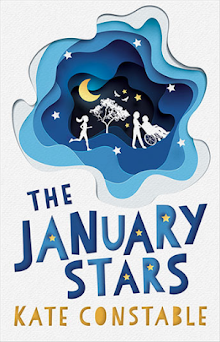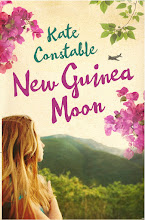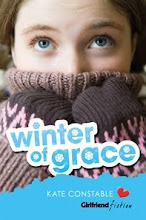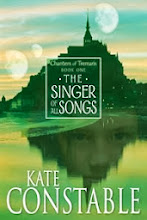I think I must have read Elizabeth Goudge's
Eliot Family Trilogy at some point, because parts of this book did seem familiar; or perhaps it's just a sense of familiarity with the world of Elizabeth Goudge. The first thing that Goudge's adult books demand of the reader is to slow down. Her pace is leisurely, her descriptions rich and detailed, but never in purple prose; she layers her portraits of characters and pictures of landscapes in deceptively simple brushstrokes that build up a vivid, vital image.
A random example:
As Caroline stood gazing the Japanese anemones were like fallen moons beyond the grey trunks of the oak-trees and there was a soft mist of mauve where the autumn crocuses were growing in the rough grass. The fires of autumn had already touched the leaves over her head, and spun from twig to twig and from bush to bush was that exquisite silver filigree of dewy spiders' webs.
The isolated old house and its garden, the marshes, the shipbuilding village of the Hard, the woods and fields are all painted for us with such loving attention that we are forced into mindful imagining (although there will be some readers who turn away in boredom, I suppose). And her character portraits are equally tender, compassionate and clear-eyed.
Having said all that, the central story of The Bird in the Tree strikes the contemporary reader as somewhat bewildering (it's set in 1938). George and Nadine's unhappy marriage has broken down; their three children have gone to live with their strong-willed grandmother, Lucilla, in her lovely old house of Damerosehay; meanwhile Lucilla's adult grandson David and Nadine have fallen passionately in love. Lucilla, when she discovers this development, is determined to put a stop to the relationship and persuade Nadine to return to George. A modern reader will find this inexplicable. Why should Nadine and David's proposed marriage mean that George will lose his children? Why should David have to give up Damerosehay, which he loves? Why the hell shouldn't David and Nadine be happy together? Why should Nadine have to return to a marriage that makes her miserable, just because Lucilla did, long ago?
However, once one accepts the premise of the conflict, the exploration of self-sacrifice, selfish passion, pain, duty, faith and the demands of love is carefully and sympathetically laid out. As Susan Green commented here recently, Goudge is 'not a fluffy writer.' She is not sentimental; she recognises the agony of grief and the torture of doing the right thing, which applies in so many circumstances, even if the situation of this particular novel might not seem to justify the pain required. Life is not easy, but it can contain moments of joy. And there is always a sprinkling of humour in Elizabeth Goudge.
'Life is rather an unhappy affair, dear,' said Lucilla. 'And it's just as well to face the fact. It's essentially sad, woven of grey stuff; yet embroidered with such bright flowers.'
One thing I discovered from reading The World of Elizabeth Goudge is that Damerosehay is based on a real house, now sadly demolished. Thank heavens its beauty has been preserved in these loving books.



















